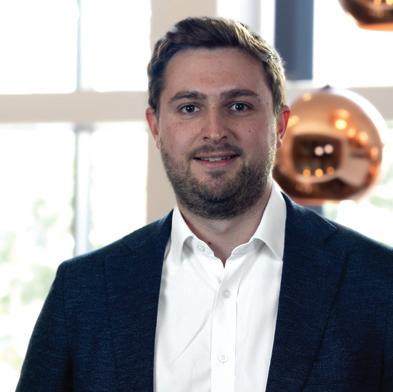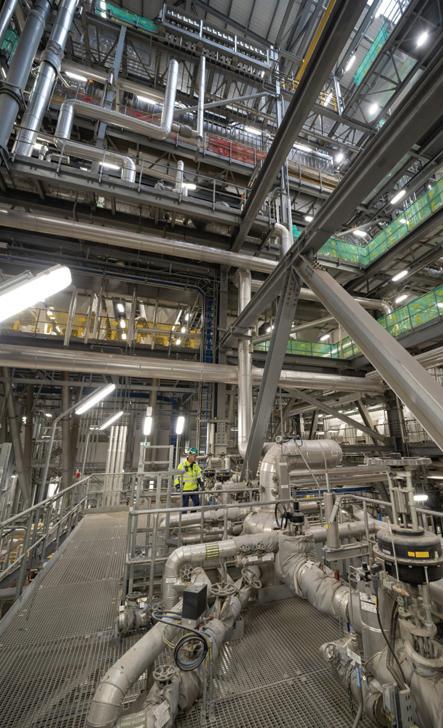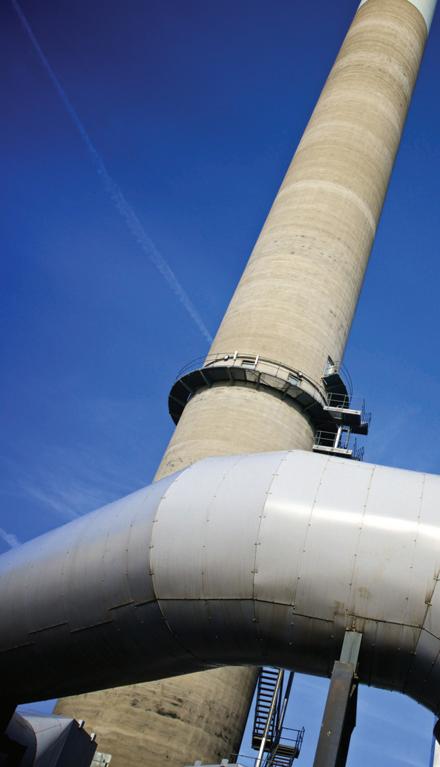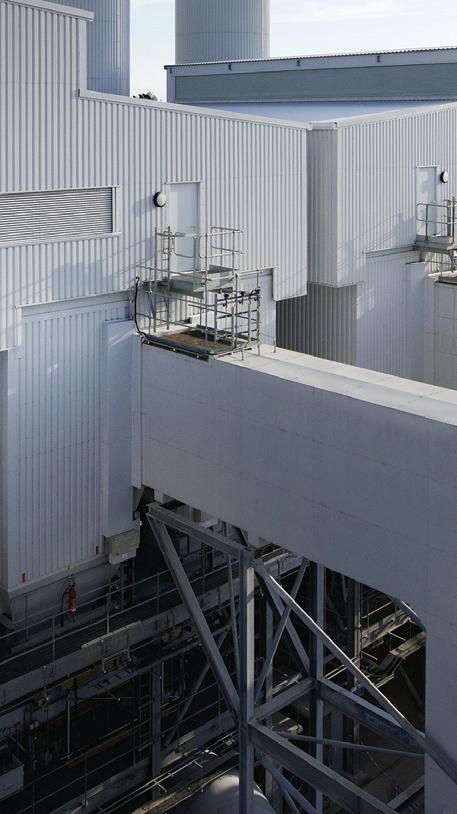












Viridor is championing change within the waste sector. With the overarching goal of building a world where nothing goes to waste, the company has developed two areas of expertise. Viridor’s Head of Carbon Capture, Utilisation and Storage James Eyton explained more, during an in-depth interview with Inside Sustainability. Report by Imogen Ward.
Every year, UK-based Viridor manages around three-and-a-half million tonnes of waste, as it strives to reduce the amount of rubbish heading to landfill.
“We treat about 20% of the UK’s waste,” revealed Head of Carbon Capture, Utilisation and Storage James Eyton. “For a long time now, we have calculated the emissions saved as a result of diverting that waste from open landfill, and it works out at around 700,000 tonnes of CO 2e each year.”
Through its waste management services, Viridor champions energy recovery, generating almost two-and-a-half millionmegawatt hours of electricity – exporting enough to power over 500,000 homes
across the country. This is a huge accomplishment, but it is just the first step in the company’s plan to combat carbon emissions.
Inspired by the savings it already makes, Viridor is now navigating towards net zero. With a goal in sight, the company has labelled 2040 as the finish line, and if successful, reaching net zero will help remove an estimated 1.4 million tonnes of fossil emissions from the business as it operates today.








One initiative that is expected to have a significant impact on this goal, is the company’s Runcorn Carbon Capture and Storage (CCS) project.
Step one: transformation
Runcorn in Cheshire, the home of the Silver Jubilee Bridge, is also the location of Viridor’s first prospective Carbon Capture plant: anticipated to be one of the largest CCS projects on an Energy Recovery Facility (ERF) in the country and a world leader in the decarbonisation of the waste sector.
It is also expected to be one of the UK’s first greenhouse gas removal projects. Runcorn CCS is shortlisted as part of the two priority clusters in the Track-1 Cluster S equencing process implemented by the Department for Energy Security and Net Zero (DESNZ).
In March of this year, Viridor agreed to a statement of principles with DESNZ – bringing the finalisation of the project one step closer.
“Runcorn is our first and most impactful step towards decarbonisation – with the expectation that it can get us over 40 per cent of the way to achieving carbon neutrality,” said Mr Eyton.
Following the successful completion of Runcorn CCS, Viridor intends to replicate this in other projects across the country.
“The exciting thing about carbon capture from energy from waste is that about half the CO2 is fossil based, and half is biogenic. When that carbon is captured, we effectively offset our emissions from the fossil content and most of the biogenic
CO2 that is captured and stored is classed as carbon dioxide removal.
“To reach our 2040 target, we are committed to implementing carbon capture on at least half our fleet of ERFs (with the aim of rolling out across as much of the rest of the fleet as possible, once we have reached our target). We are effectively transforming from a company that provides a waste treatment service, into an energy transition provider of wider decarbonisation and carbon dioxide removal.”
The Runcorn ERF was developed in partnership with the Greater Manchester Combined Authority and involves a longterm agreement to treat almost all of Greater Manchester’s black bag waste . Once up-and-running, Runcorn’s CCS facility is predicted to capture around one million tonnes of CO2 per year, and





in doing so, will be removing around 450,000 tonnes of carbon from the atmosphere annually.
In an effort to promote a more circular economy, Viridor is looking to boost its chemical recycling capabilities both in the UK and Scandinavia.
“We have recognised that there is an exciting movement developing in plastic recycling,” said Mr Eyton. “We want to be part of this new way of recycling hard- to-recycle polymers and believe it is the future for this sector.”
Viridor expanded its capabilities in this area through the acquisition of Oslobased Quantafuel, which has developed its own Plastics-to-Liquids pyrolysis technology, which transforms hard-torecycle polymers (such as plastic films) into feedstock chemicals ready for new plastics production.
“This is new technology for Viridor, and it enables us to chemically process mixed polymers and hard-to-recycle plastic films back to more basic molecules, so that they can be used to make new products without the need for continued use of additional fossil fuels for virgin plastics,” explained Mr Eyton.
This acquisition perfectly reflects Viridor's ambition to lead innovation


in the plastics recycling sector and deliver full circularity in all four major plastics by 2025.
Viridor’s achievements have been made possible with the support of its loyal cus tomer base and hardworking supply chain.
“As a company, Viridor depends on long-term relationships,” explained Mr Eyton. “We have been operating for a number of years with the support of a mature set of suppliers.
“We have strategic alliances up-anddown the country, that provide valuable support across day-to-day operations,
regular outages and fleet maintenance. We’re also grateful for our long-running partnerships with local authorities.”
Viridor has invested £2.1 billion into the development of an energy recovery network in the UK featuring 12 locations. And with knowledge and understanding key to the success of industry-wide decarbonisation, all but one of these locations feature an education centre.
“We run tours and education days for schools, local authorities and anybody


that wants to learn more about energy recovery,” explained Mr Eyton.
“Education is a big part of what we do, and is a part of our thinking right from when we first develop our projects and apply for planning because it is important that our facilities can operate alongside and give back to the communities in which we operate.
“From my personal experience, not many people know what happens to their waste after it goes in the bin. I certainly wasn’t clued up on it before I joined Viridor, three years ago. There is so much happening within the industry right now,
and not enough people are aware of it. People need to know what we do, how to get the most out of their waste and how we are going to utilise it to generate carbon dioxide removals and become more circular in the future.”
With Viridor aiming to become climate positive by 2045, the company is currently on track to meet this ambitious goal.
“We remain focused on reaching our decarbonisation targets through the lenses of carbon capture and circular economy,” said Mr Eyton, in conclusion. “We have several projects underway that look promising as we continue to build a world where nothing goes to waste.”
n

